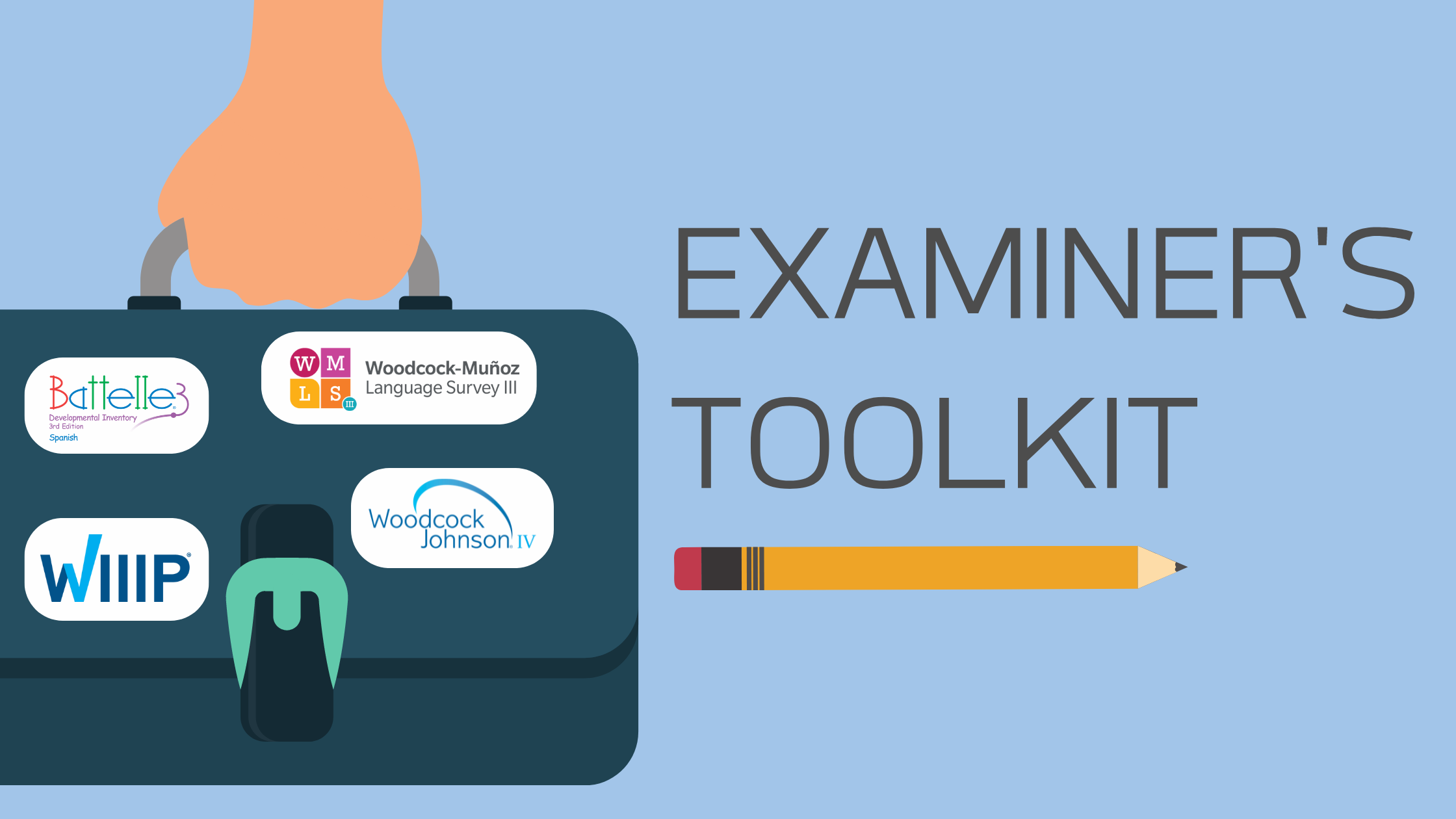*Participants will receive a recording and certificate of attendance


Assessing the language proficiency of English learners (Els) is a legally mandated requirement. Most language proficiency assessment provide the examiner with information about the student’s ability in either English (L1) or their home language (L2), which is vital to determine the most appropriate language to assess the student. The Bilingual Verbal Abilities Test (BVAT) goes further by providing the examiner with the child’s bilingual abilities, which is essential in seeing the “full picture” of the child’s linguistic abilities. This webinar will provide a discussion of the importance of assessing language proficiency (Cognitive Academic Language Proficiency) in both L1 and L2, why it is also essential to understand the child’s bilingual abilities (L1 and L2) to see the “full picture” of the child’s linguistic abilities, and how the BVAT can provide the examiner with essential information to help make informed eligibility decisions.
Early identification of students struggling with the basic skills involved in reading and mathematics is imperative for future success. This session will highlight the use of the BEAS and ESGI products together in providing an assessment of early literacy and math skills of young students. Participants will obtain a general understanding of the BEAS and the ESGI assessments. Also, a case study demonstrating the use and integration of the assessment will be highlighted.
Join us virtually with your favorite beverage to learn about the WJ IV Tests of Cognitive Abilities. We will highlight the key features of the WJ IV manual.
.png?width=2240&height=1260&name=Copy%20of%20Copy%20of%20Examiners%20Toolkit%20(1).png)
The Texas Education Agency urges evaluators to write impact and needs statements that drive instruction. They require us to gather multiple sources of measurement. We are no longer only charged with justifying that a child meets criteria. Driving instruction means that we have to go beyond the score to describe what a child needs to work on, establish a baseline, and give the teacher tool to measure the progress that is in line with our FIEs. One great way to do this is to choose CBMs as select tools to measure core skills assessed with formal measures. CBMs add just one more layer to your assessment practice. CBMs are quick, easy to administer, and come in multiple forms. What’s more is that several are free! Because of advances in research, many CBMs now have the same technical adequacy as published tests and they are accompanied by a manual, national norms, and standard administration procedures. The benefit of these is that teachers can pick up where your evaluation leaves off. Now that’s Driving Instruction!
As workloads increase exponentially, the importance of self-care and balance in the workplace and at home has become increasingly more challenging. This session will provide an overview of a recent study investigating the types and amount of wellness activities reported by a group of educational diagnosticians. Additionally, strategies for incorporating and improving well-being will be addressed.
While the definition of ID has not changed, we do know more about the impact of extra considerations that need be applied to all students and unintended consequences when these are not considered. This session will briefly review ID eligibility to include cognitive and academic measures, as well as adaptive behavior measures. We will look at publisher guidance, policy, professional judgment, and best practice (the 4 P’s) as they are vital to all our referrals. This session will challenge you to look at the bigger picture before identifying a student as Intellectually Disabled.
During this session we will explore the information provided on the WJ IV score reports. The presenter will discuss and review the features of the score report and discuss interpretive qualities. The presenter will also compare the differences between the standard score report and WIIIP’s comprehensive report.
The Battelle Early Academic Survey (BEAS) is the newest member of the BDI-3 family. The BEAS is an assessment of early literacy and mathematics skills for children ages 3.6-7.11. This session will provide a brief overview of the BEAS and highlight different uses of the assessment. This session will explore the use of the BEAS within the FIE giving strong support for IEP development.
Full Scale IQ interpretation continue to perplex examiners when it comes to discriminating between an SLD or IDD. This session will address the policy implications and publisher interpretation regarding global scores such as the FSIQ or General Intellectual Ability (GIA) score. Case studies will be used to answer all the questions you are afraid to ask.
Bring your favorite cup of coffee or tea and join us virtually for a brief overview of the NEW Battelle Developmental Inventory, Third Edition (BDI-3). This session will highlight the versatility of the BDI-3.
Join Dr. Schultz as he goes through case studies to illustrate how to go “Beyond the Scores:” by using task demand analysis (TDA). By using a TDA in your assessment you will be able to engage in more efficient testing with deeper levels of interpretation.
This session will highlight the changes in the field of assessment and movement towards a digital assessment solution. Presenters will highlight the benefits of using digital assessments. Digital solutions will also be discussed.
This session will introduce a case study from referral to decision-making. The presenter will discuss key aspects to conducting a targeted assessment and testing plan. Emphasis will be placed on the importance of using a preponderance of data and a variety of assessment tools and strategies.


© 2022 Riverside Assessments, LLC. All rights reserved.
General Inquiries 1.800.323.9540
Sitemap